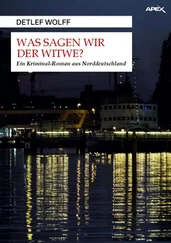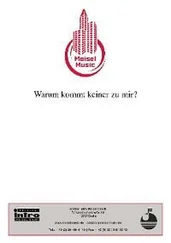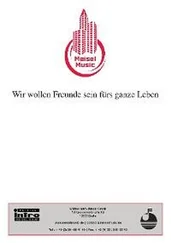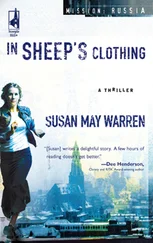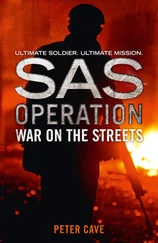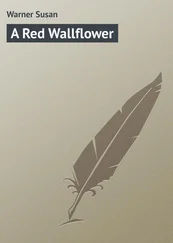Zakayev shot him in the head.
“Who was he?” she asked.
“Who?”
“The bull.” The girl had on a luxurious black sable coat. The silky pelts caressed her purple-stockinged thighs, which held Zakayev’s attention for a moment. Together in the Volvo, driving away from the repair shop, they looked like successful Russian entrepreneurs on their way to a meeting with foreign venture capitalists. Or a man with his young mistress.
“Nobody.” Zakayev put his eyes back on the road. Traffic was still heavy. Linked metal barricades had been spotted along the prospekts in anticipation of the crowds sure to be drawn to the presidential motorcades sweeping through the city. He changed lanes, made sure the turn signal went ka-pick, ka- pick, ka-pick. An infraction might draw the attention of the militia. Their identity cards would hold up to scrutiny, but he was not eager to test them.
“Ali, tell me.” She twisted around in her seat, peeled off a purple kid glove, and reached over the console to fondle his crotch.
“An FSB officer.”
The girl stopped manipulating him. She slowly took her hand away and faced forward again. “Ali, an FSB officer?” The Russian Federal Security Service—Federal'naya Sluzhba Bezopasnosti, or FSB— had responsibility for providing security at the summit.
“We weighed the risks,” Zakayev said. “They were acceptable.”
Instinct had told him that the Winter Palace—Russia’s Versailles, recently restored to its former imperial splendor—would be the focus of the upcoming summit meeting between the American and Russian presidents.
“A Chechen woman who works for a St. Petersburg catering service that has a contract to supply meals for the FSB—she told us that one of their men assigned to the press motor pool had access to the summit schedule. She said that sometimes this man didn’t show up for work at the parking lot because he was drunk and that his FSB supervisors didn’t seem to mind because his friends filled in for him.”
“And you took him?”
“Late last night, after he completed his shift. I concluded that if he suddenly disappeared he wouldn’t be missed for days.”
Snow flurries had changed to rain; the wipers zickzicked over the greasy windshield glass.
For more than a month St. Petersburg had been teeming with American and Russian security personnel preparing for the summit. Parts of Dvortsovaya Ploshchad had been sealed off and access to the Hermitage and Winter Palace, former residence of Czar Nicholas II and the Russian imperial family, had been severely restricted. Already a whole section of the city from the Neva south to the Obvodnyy Canal had been sealed off to traffic and pedestrians.
“He told us what we wanted to know about the summit. The schedule. Times and dates. Everything.”
Zakayev had learned that after all the pomp and circumstance attending the American president’s arrival, he and the first lady would be given a tour of the Winter Palace by the Russian president and his wife. They would see personal items from the imperial family on display in the Malachite Room and stroll the White Dining Room, where the Bolsheviks seized power in 1917 from Kerensky’s provisional government. After all the festivities and a state banquet, the real business of the summit would take place in one of Catherine the Great’s private apartments in the Hermitage.
“But, Ali,” said the girl, “eventually they’ll go looking for him.”
“By the time they get themselves organized, it will be too late.”
Zakayev turned onto Nevsky Prospekt and pulled up at the Nevsky Palace Hotel. It was popular with successful European businessmen who liked to show off their mistresses while prowling the lobby or cutting deals in the restaurant over caviar and sturgeon mousse. It was the perfect place for a wanted man like Zakayev to hide in plain sight.
Scott’s eyes went to the two-inch-thick file folder emblazoned with diagonal black stripes and labeled, DIRECTOR—PURPLE.
Karl Radford, standing behind his desk, ignoring regulations that prohibited smoking in government buildings, shifted a cigarette to his left hand so he could pick up the folder with his right. In a husky voice that matched his thick build, he said, “I was told you know Frank Drummond.”
“Rear Admiral Frank Drummond? Yes, sir, I do.”
Radford viewed Scott through a scrim of cigarette smoke. “How well do you know him?”
“He’s an old friend. My patrone. I served two tours under him—as exec on the Nevada, then a shore billet at Net Warfare. He also straightened out a few problems I had a while back…. But then, I assume you already know this.”
Radford nodded.
Scott was on a hair trigger, his instinct for sensing trouble alive. “Why the questions about Frank?” Radford said, “How well do you know his wife?”
“Very well. She and Frank are two of a kind. Always looking out for the hired help. Vivian’s a wonderful, gracious lady. They never had children, but they’d have made great parents.” What he didn’t add was that long deployments at sea were tough on a marriage—tougher on children who grew up without dads. “They’re certainly devoted.”
Radford, collecting his thoughts, gazed out the window of his office in Crystal City, Alexandria, Virginia, at an unbroken stream of headlights and taillights crawling past the Pentagon on I-395. He watched late arrivals high-stepping through puddles in the parking lot downstairs. Across the Potomac, the tip of the Washington Monument scraped the bottoms of dark clouds filled with more rain. Scott thought the scene mirrored his own mood perfectly.
Radford rounded on Scott and said, “Do you know if Drummond was a homosexual?”
Something caught in Scott’s throat. Had he heard right? Radford saying that Drummond was a homosexual? Was a homosexual?
“Well?” Radford insisted.
“Frank Drummond is not a homosexual,” Scott said firmly.
“How do you know?”
“Because I know the man intimately. I worked with him for years—”
“Doesn’t mean a damn thing. Plenty of men hide it. Men in the Navy.”
“What’s this all about, General? My orders to report to you didn’t say anything about Admiral Drummond.”
Radford lurched back to his desk. He mashed out his cigarette in a thick cut-glass ashtray and, looking down at the twisted, flattened butt, said, “Frank Drummond is dead.”
For a long moment Scott held Radford’s gaze. “Dead? How?”
“Suicide. In Murmansk.”
An ugly picture was forming and Scott refused to believe what he saw.
He and Drummond had been friends for over ten years. They had met when Scott had been ordered to the USS Hampton, an Improved Los Angeles-class SSN, as Drummond’s exec. Drummond had immediately recognized Scott’s exceptional skills as a submariner and had helped push his career along the track to a command of his own. The chemistry between them had been right, and later, when Scott followed Drummond ashore, their professional interests intersected and their friendship and mutual respect deepened. Drummond was there with sound advice and wise counsel when Scott had to endure the pain of a shattered marriage and the near destruction of his career over the Yellow Sea operation.
Scott, numb, disbelieving, got to his feet. His words boomed across Radford’s desk. “Impossible. Frank would never commit suicide. Never.”
Radford opened the purple file. Parts of pages spiked to the folder were highlighted in yellow marker. “Three days ago we received a Flash report from our embassy in Moscow. Frank Drummond was found dead in a hotel in Murmansk. Also found dead in his room was a young Russian sailor stationed at the submarine base in Olenya Bay, Kola Peninsula. The FSB report states that the men were”—Radford put on a pair of black half frame reading glasses and consulted a highlighted page—“found in bed together, naked, each shot in the head. The weapon used, a small-caliber pistol of Russian make, was found in Drummond’s hand.”
Читать дальше



